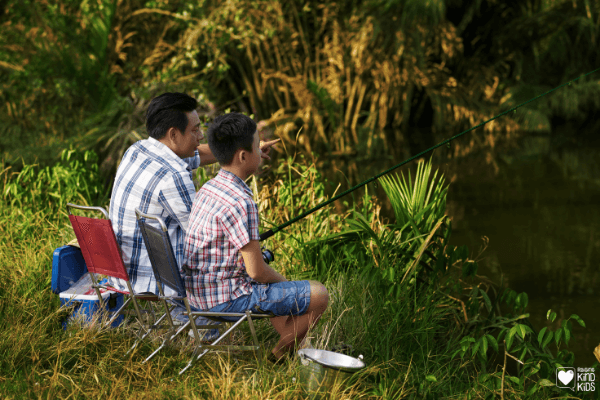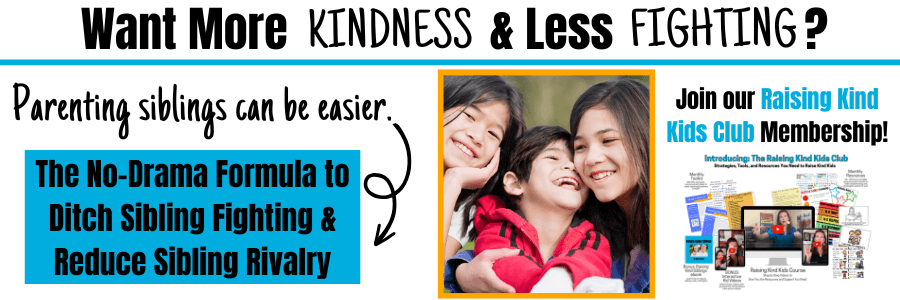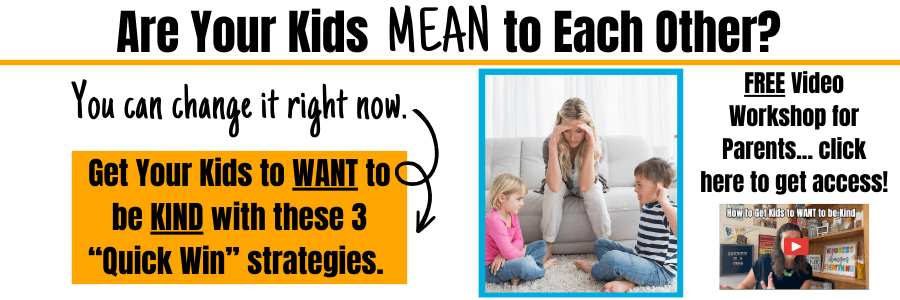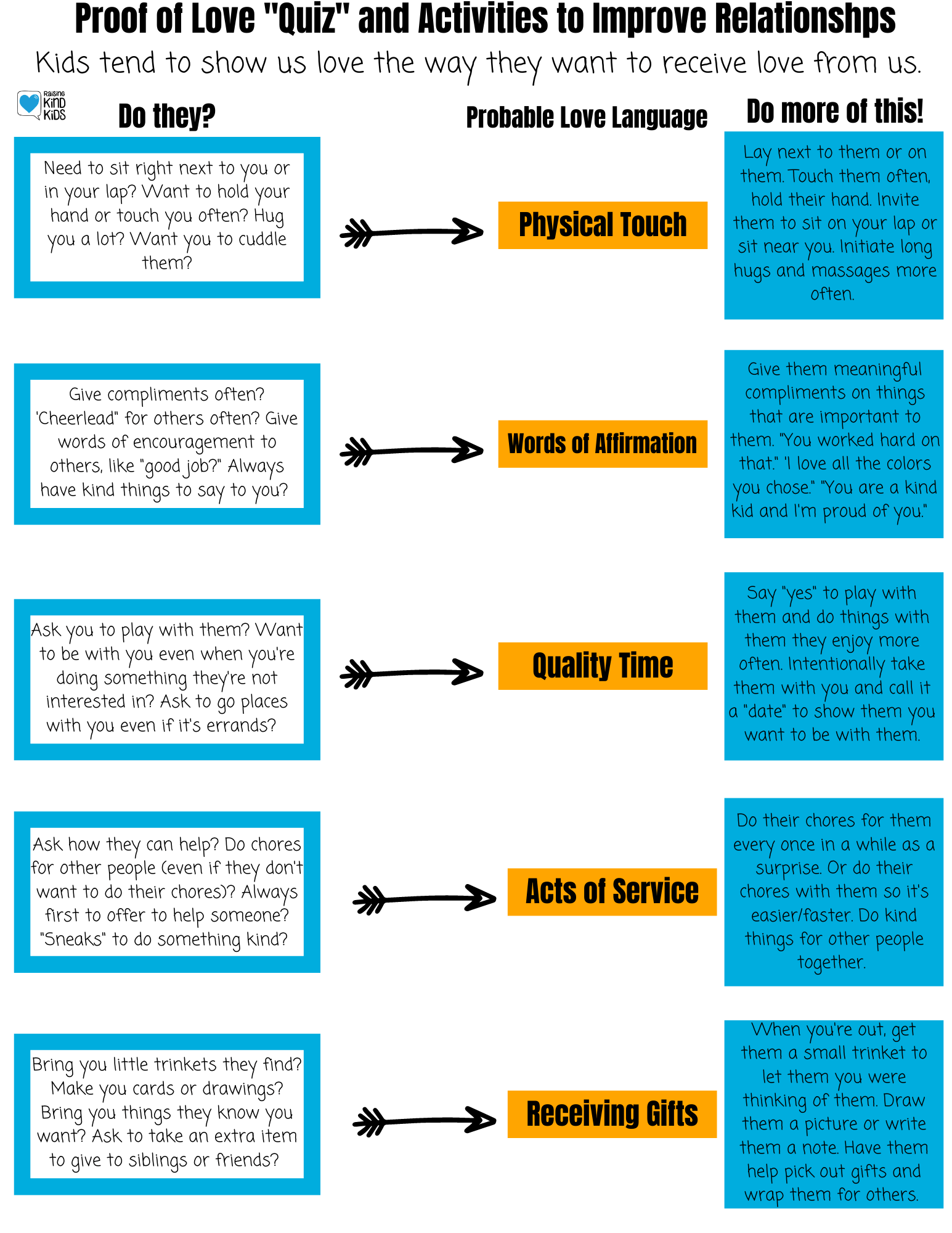Use these 10 tips to connect with teens which helps them feel safe and loved and more confident to go be their best selves in the world.
I had said it one too many times, and I knew it.
I had asked my teen daughter to stand up with her shoulders straight one too many times. She’s SO tall and I often remind her to throw her shoulders back and own her height, be proud of it. Tall girls are awesome. And usually, she does it and then I make a point not to correct her for a while.
But this time, she was in a gorgeous top with her shoulders hunched over. And I found myself repeating the reminder, “C’mon, girl. Shoulders back. Roll your shoulders.”
It was too much. Because she was also tired, hot, a little hungry, and nervous about something completely unrelated.
And so I got an eye roll, a huff, crossed arms, an indignant, “Geez, I am,” and she stormed off away from me.
I berated myself because, in that moment, I knew I had lost her for a little bit. Instead of reminding her to have a better attitude or to treat me with more respect or lecture her about how I’m only trying to help her not haunch over like my grandma and she should thank me, I let her go.
The teen hormones that too often place her in a fight or flight reaction, set off her warning bells, and she physically and emotionally retreated from me.
And I had to let her go without a fight so she would come back to me.
As a mom of a teenager, I work hard to make sure I’m building our relationship up by connecting in meaningful ways to her and purposefully de-escalating situations, even if I’m irritated or frustrated, or angry.

Why Connecting with Teens Is Essential
When my teen was a toddler, older moms would always reassure me, “Don’t worry, it gets easier.”
Um, why would they lie right to my face like that?
Sure, now I’m sleeping. I don’t have to watch my kids’ every move because they dump sugar on the floor if I go pee. I don’t have to empty the dishwasher anymore or do as much laundry because I taught them how to do it.
But holy cow, no part of parenting teenagers is easier.
The older moms should have said, “Bigger kids, bigger problems. The blow-out diapers and temper tantrums feel like a lot now, but you’ll be okay. And it’s giving you the stamina, practice, and calmness to handle big crazy teen blow-ups later on.”
In hindsight, I miss her full diapers when faced with her romantic relationships and heartbreaks, friendships and “girl drama,” SATs and college prep classes, drugs and alcohol, driving, and massive hormonal shifts. Parenting a teen is not for the faint of heart.
But here’s the deal… we can make all of the hard teen stuff work.
We can walk her through anything she faces, anything she struggles with. We can sit with her through the heartache and the drama and the ridiculous screw-ups that are bound to happen as she becomes more independent.
I don’t want to just ‘survive’ her teen years.
My days to tuck her in and have her sit across from me every night at dinner are dwindling because I know she is on the path to move out and be independent of me.
So instead of just surviving, I want to thrive with her during her teen years.
I want to enjoy these last few years with her at home. And more importantly, I want her to enjoy them too so she doesn’t feel like she has to escape us and our home the first chance she gets.
But thriving won’t happen by accident. It takes works.
And it starts and ends with connection.
Our daughter has to feel our love. She has to know it in her soul, and even if she’s irritated or frustrated or mad or embarrassed or devastated or nervous or scared, she has to feel loved and accepted and safe.
This will emotionally protect her if she faces ‘mean girls’ or bullies or abuse and will give her the confidence to be her amazing self.
And the connection we build with her daily will help get her (and us) safely and confidently to the other side of the teen years without permanent resentment, distrust, or irreparable damage.

10 Ways to Connect with Your Teen:
1. Connect with their Love Language
We have used our kids’ love languages for years to help connect with them in meaningful ways, in a fraction of the time. It also reduces sibling and jealousy like magic.
I hug and touch my teen often, give her meaningful compliments, buy her little gifts when I’m out, and I keep her favorite dessert stocked in the freezer. But those aren’t her love language…For her, the “proof” of my love is quality time.
Ten minutes together means far more to her than a hug, a gift, a compliment, or frozen Kit Kat ice cream bars.
So I intentionally often ask her to do something just the two of us: go for a walk, run to the store, grab a coffee, sit on the back patio together, chat on her bed, or eat frozen Kit Kat ice cream bars together.
That fills her up and is the fastest and surest way for her to feel loved, even on the tough days when I remind her to stand up straight too often.
Related: Not sure what your teen’s love language is? You can have them take this online quiz. But they’ll also show you love how they want love from you. This Proof of Love “Quiz” will help:
2. Respect Them
Many of us were raised in an authoritative household, where we heard, “Because I said so,” or “Under my roof, you’ll...” or “My house, my rules.”
And while we absolutely need clear boundaries and consequences for unsafe behaviors, we have to remember our teens are people.
And if I want respect, I have to give respect.
That does not mean she gets to walk all over me. That does not mean I won’t step in if she’s in danger or if she is about to make a drastic mistake you don’t recover from.
But it does mean I’ll knock before entering her room. It does mean I won’t yell at her (because I don’t want her to yell at me). It does mean if she asks me for space, I’ll give it to her. It does mean I do what I say I’ll do and I won’t do what I say what I won’t do.
3. Ask them to Connect with You
Sometimes our kids don’t know how to connect with us even if they crave it. Even if they stay in their room alone or they put their headphones on to disconnect from the world around them.
Alone time is great and we all need it to recharge, especially our introverted kids.
But, staying in their room all the time isolated from family is not a healthy, connected place to spend their teen years. They can easily bury themselves into an emotional pit when they’re alone for too long without real, human interaction.
So we can gently, ever so gently with zero lecturings or nagging, pull them out of their alone-bubble and break down the invisible wall they built up around them to tell them we want to be with them because we enjoy their company.
Ask them to be with you.
Ask them to watch a movie or TV show, but let them pick the movie.
Ask them to put their phone away when they’re in a car and it’s just the two of you so you can chat, but let them choose the music you listen to.
Ask them to eat dinner with the family and ask them to tell you about the best part of their day or the worst part of their day.
Ask them to play a game or go on a family date or bake or cook or dance with you…whatever they love to do.
And then keep asking them often so they know you want to spend time with them.
If you need ideas on things to do with teenage daughter, you’ll love these.

4. Choose Your Battles
We could look at these next few years before teens leave our home to squeeze in as many lessons and teach or correct as many behaviors as we can before they’re on their own. But that won’t end well for anyone.
So instead, we have to choose our battles.
What are the deal breakers in your home? Then ask yourself if they’re really all that important or are they only pet peeves of yours and you can let go of them?
Is it worth causing a tear or rip in your relationship with your child to lecture them on something that really isn’t that important in the grand scheme of life? My teen sneaks chocolate chips at all hours of the day (just like I did at her age). Not worth the battle.
Then, be consistent with your rules and expectations on the important things, like being trustworthy, and respectful, and kind. Those are worth the ‘battle’ in our house.
5. Build Up Their Self-Esteem
There is nothing more incredible than a confident person.
But there’s something about teenage hormones that make teens painfully unconfident. These kids have got one foot in childhood and one foot in adulthood and that’s a scary and confusing and overwhelming place to be.
They’re trying to figure out who they are, who they want to be, their place in society, and how to interact with people both inside and outside of our house.
So as they navigate what feels new and weird and overwhelming, they second guess themselves and their actions…which leads them to often feel judged by teachers, classmates, teammates, friends, “friends,” and their parents.
We can guide them to find good, true friends so they feel less judged by people they spend time with, but our main job at home is to build them up and point out what they’re doing that’s right and awesome:
- You worked really hard on that.
- Thanks for keeping your room clean.
- You’re a great big sister…your little sister loves hanging out with you.
- I see you studying for your test. That shows you care about what you’re learning and the grades you get.
- You played really hard during your game. You’re a great teammate. I had fun watching you play.
- I love your sense of style. You really show off your personality with your outfits.
Or we could just say:
- I’m really proud of you.
- I’m so lucky you’re my daughter.
- I’m so grateful I get to be your mom.
- You’re an incredible kid.

6. Tuck Them In Still
On the nights when I’m exhausted and already plopped on the couch with a good book or my favorite recorded show, I make a conscious effort to get up and tuck in my kids, even though they no longer need me to.
My teen could get ready for bed by herself years ago. There are no more baths to be given or storybooks that need to be read or teeth that need to be re-brushed.
But I still tuck my teen in at night because that’s when she wants to tell me everything. Maybe it’s being cozy in her pjs. Maybe it’s because she’s drowsy. Maybe it’s because we’re finally alone without her siblings’ prying ears.
But when I sit on the edge of her bed, or crawl in next to her for a few minutes, she starts talking. She tells me things she didn’t get a chance to during the day…what she’s excited about or nervous about or about her new favorite song.
I cherish these alone moments with her because again, I know I’m on borrowed time.
There will come a time in the not too distant future where I will walk into her room and she won’t be there.
7. Be Interested In What They’re Interested In
As parents, we need to take a genuine interest in what our kids are interested in, what they’re saying, and what they’re doing. They may not come to share with us often, but when they do, we need to be ready to listen and ready to show up for them, consistently.
So, I have a confession to make. I can’t stand my daughter’s new favorite music. And I really don’t like her new favorite TV show. I don’t get it.
But it doesn’t matter.
Because if it’s important to her, by default it has to be important to me.
And if I don’t listen or care when she tells me about the characters in her show, she won’t come and tell me about the drama at school.
If I don’t show interest in what interests her, that’s me telling her I don’t care about what’s important to her.
So I listen to her music. I watch the show. I ask questions. I nod politely and continue to let her choose the music in the car.
It’s important to her for a reason. I don’t need to like it or understand it. I like her and I want to understand her and that’s far more crucial. So the music and the obnoxious TV show come along for the ride.

8. Ask Them This One MAGICAL Question
When your teen turns to you to tell you a story or a problem or to share drama that happened to them, it’s our natural Mama Bear instinct to want to fix it and take away their hurt.
And since we’ve had the benefit of being on the planet 20-40 years more than them, we probably have perspective and experience and a suggestion or ten that could solve their problem or issue in minutes.
But, they may not want us to fix it, even if we can fix it.
So as parents, we have to ask them this one magical question when our teen comes to us with an issue or problem: Do you want advice and help or do you want me to just listen? Or you could ask, Do you want a solution or a sympathetic ear?
If it’s advice and help, give them a few suggestions so they can ultimately choose what feels best for them. Tell them what you would do and why, and then empower them by telling them you know they’ll do what’s right for them.
If it’s ‘just listen,’ then you’re going to have to just listen. Bite your lip if you have to. Nod.
And then empathize:
- Wow. That is tricky.
- That stinks. I’m so sorry.
- You must have been so embarrassed. I’m so sorry they said that in front of everyone.
- I know you will be able to work it out with her since you’ve been friends for so long.
- You are in a really hard spot. I know how that feels.
Ask them questions like “How are you feeling?” and “What are you going to do next?”
But whatever you do, resist the urge to fix it if they just want your sympathetic ear** so they’ll know they can come back to you next time and you’ll trust and respect what they need.
**This does not apply to stories about people who are getting hurt/harmed, abused or bullied, or are about to get hurt/harmed, abused, or bullied. Handle it in a way that shows your child you respect them but you need to step in as an adult to keep people safe.

9. Don’t Take It Personally
Our teens will do and say things that are grossly inappropriate, disrespectful, and downright nasty.
They’re testing boundaries. They have underdeveloped impulse control and their frontal lobe is not firing on all cylinders yet. Their hormones are raging and they often have irrational, out of character, “out of body experiences” where they feel like they couldn’t control their big emotions even if they wanted to.
It can feel impossible to deescalate the situation when we’re livid or frustrated or embarrassed by their crummy behavior or rude comments and instinctually we may want to yell, or retaliate, or shout out ridiculous, over-the-top punishments.
When my daughter yells or is rude, I use this one magic phrase to stop her in her tracks, and I challenge myself to be the calm one in the situation. The crazier and angrier she gets, the calmer and more peaceful I get. Because the other thing I remind myself in this situation is that between the two of, there’s only one adult in this relationship. And it’s clearly not her.
So I have to step up and model how to be mad without being mean and how to express feelings without being rude or cruel.
Related: How to Not Blow Up When Our Kids are Unkind
But it can also be easy to get my feelings hurt by my children, especially when they’re taller than me and shave.
So I also challenge myself not to take their behavior personally. I don’t allow them to speak to me in a rude way (I use that magic phrase), but I also know I’m their safe space. I’m the one they let their hair down with. I’m the one they test boundaries with. The things they say to me, they’d never in a million years say to a friend or a teacher or a coach.
I try really, super-duper hard to not take it personally.
And I tell them it’s not okay to talk to me this way. I tell them no one should be spoken to this way. I remind them in our home, we speak with kindness even when we’re mad or frustrated. I tell them they need to go calm down and come back when they’re ready to have a real conversation and apologize for being hurtful. I tell them I love them, but they may not be near me right now if that’s how they’re going to treat me.
And when all else fails, I add a little levity and ridiculousness to the situation and remind my daughter she’s not allowed to talk to me this way because I pushed her out of my vagina. It’s usually enough to crack a smile or break the tension so we can have a more respectful conversation and change the trajectory of the moment.

10. Meet Them Where They’re At
If our goal is to connect with our teens, we have to meet them where they’re at, emotionally and physically. And while we can push gently to get them out of their funk or out of their comfort zone or to physically get them out of their room, we have to approach the situation carefully and respectfully.
Meet them where they’re at physically and go be with them. Go to their room or the garage or the basement if that’s where they are. Offer compliments. Ask non-judgemental questions about what they’re doing or about how they decorated or what’s new in school. Start conversations about things they’re interested in.
Physically be with them.
Then don’t overstay your welcome, and invite them out of their space to do something they like doing with you.
If they’re emotionally withdrawn, you can still meet them where they’re at. Remind them they can talk to you. Remind them you will just listen without judgment. Remind them you’ve known them the longest and you see them and love them for who they are.
Or just sit there next to them and be a witness to their emotional pain. Tell them they can be sad or lonely or frustrated or embarrassed or confused or anxious because being a teenager is really flipping hard and you’re just going to sit here next to them for a while.
Pull them back to you with their love language and physically being near them and by emotionally being available for them.
Then gently, coax them towards you. Continue to prove you’re a safe person and they are safe with you.
Because there’s no greater way to connect than knowing you can be vulnerable with someone and will feel better once you’ve spent time with them, even if nothing is said.
Is it always easy to connect with our teens? Nope.
Is it always worth it. Yep.
Because not only will our connection give them the confidence to go be their best selves out in the world, once they’re out in the world, they’ll want to come back to us.
They’ll want to come back home where they feel safe and connected. And where their favorite frozen dessert is always in the freezer.





Leave a Reply